Justice Reinvestment: An Innovative, Data-Driven Approach to Enhance Public Safety
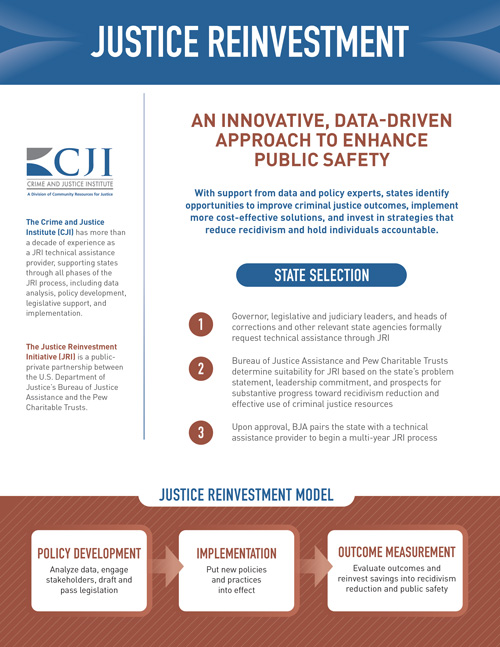
The Crime and Justice Institute (CJI) has more than a decade of experience as a JRI technical assistance provider, supporting states through all phases of the JRI process, including data analysis, policy development, legislative support, and implementation.
The Justice Reinvestment Initiative (JRI) is a public-private partnership between the U.S. Department of Justice’s Bureau of Justice Assistance and the Pew Charitable Trusts.
With support from data and policy experts, states identify opportunities to improve criminal justice outcomes, implement more cost-effective solutions, and invest in strategies that reduce recidivism and hold individuals accountable.
State Selection
- Governor, legislative and judiciary leaders, and heads of corrections and other relevant state agencies formally request technical assistance through JRI
- Bureau of Justice Assistance and Pew Charitable Trusts determine suitability for JRI based on the state’s problem statement, leadership commitment, and prospects for substantive progress toward recidivism reduction and effective use of criminal justice resources
- Upon approval, BJA pairs the state with a technical assistance provider to begin a multi-year JRI process
Justice Reinvestment Model

JRI Process
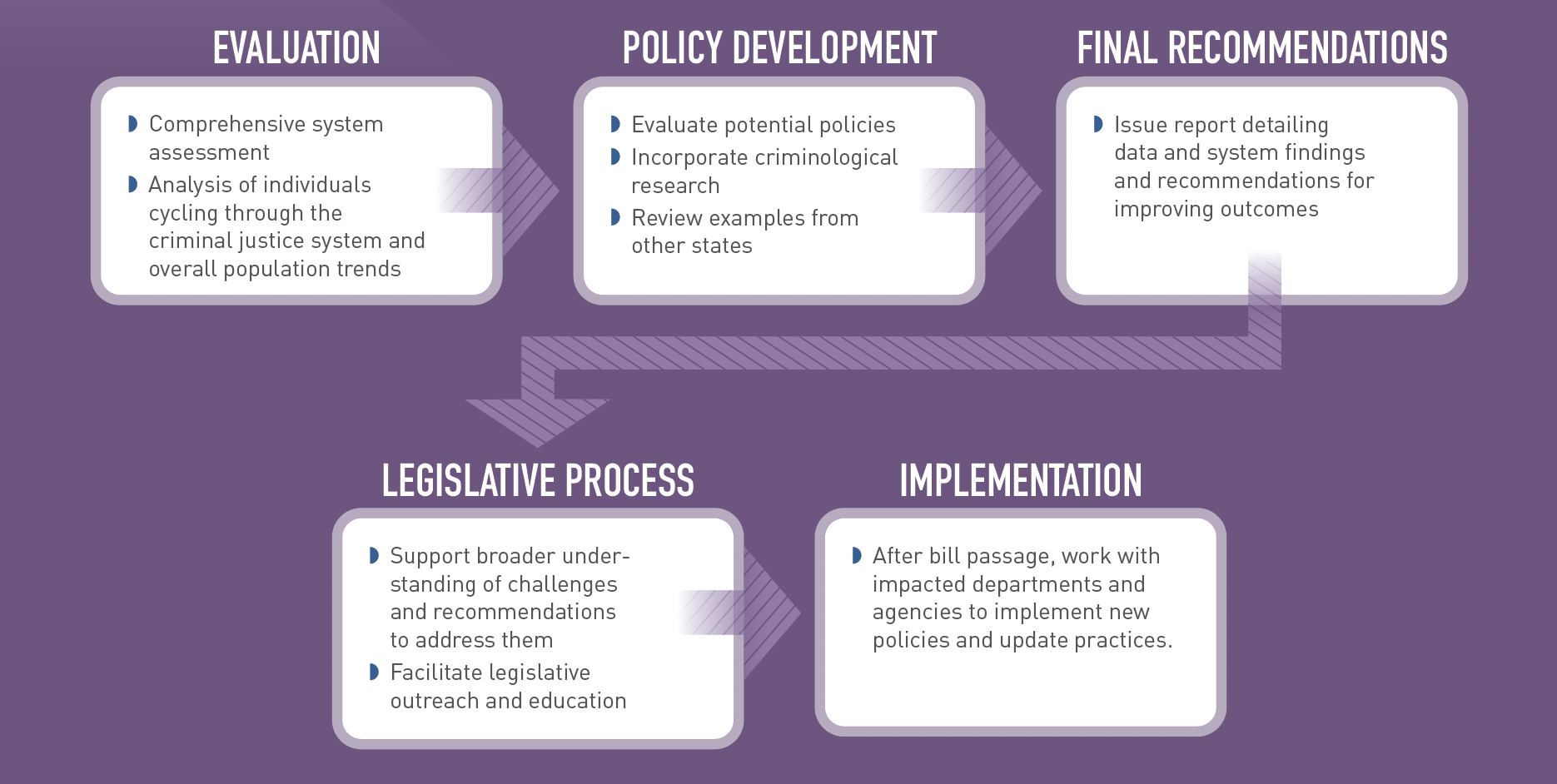
The JRI model breaks down into two phases
In the first phase, a state analyzes data from its criminal justice system, explores opportunities for improvement, reviews recommended state-specific policy changes, and passes legislation. In the second, the state implements the new policies and practices included in the legislation and sets up mechanisms to measure outcomes and impact over time. Partnering with a team of technical assistance providers offers the state additional expertise and support throughout both phases. CJI staff work directly in support of the oversight bodies and state leadership throughout the JRI process.
Phase I
Phase I draws input from a working group made up of legislators, agency heads, prosecutors, defense attorneys, law enforcement officials, the judiciary, people directly impacted by crime, survivors’/victims’ advocates, and others. This group works with the technical assistance provider to sift through data, identify gaps and challenges in the system, review best practices from other states, and make recommendations to the state legislature. Lawmakers use those recommendations as the basis for legislation aimed at reducing costs while enhancing public safety and directing resources to tested strategies that reduce recidivism.
Phase II
This phase begins once a state enacts legislation. Technical assistance providers deliver individualized support to help the state identify and understand which of the agencies’ policies and practices need to change to comply with new legislation or policies and how to best structure state-level oversight. Technical assistance providers work with state leaders and agency staff to develop and monitor implementation plans, educate and create buy-in from staff, develop internal agency policies, measure the impacts of the policies over time, and reinvest in strategies that protect public safety.
JRI Nationwide
More than 30 states have used the Justice Reinvestment approach since 2010 to pursue policies that slowed or eliminated projected prison growth, and, in some states, reduced the prison population in an effort to shift resources to more effective recidivism reduction practices. CJI has partnered with Pew and BJA to provide technical assistance on adult criminal justice reforms in 13 states.
JRI States
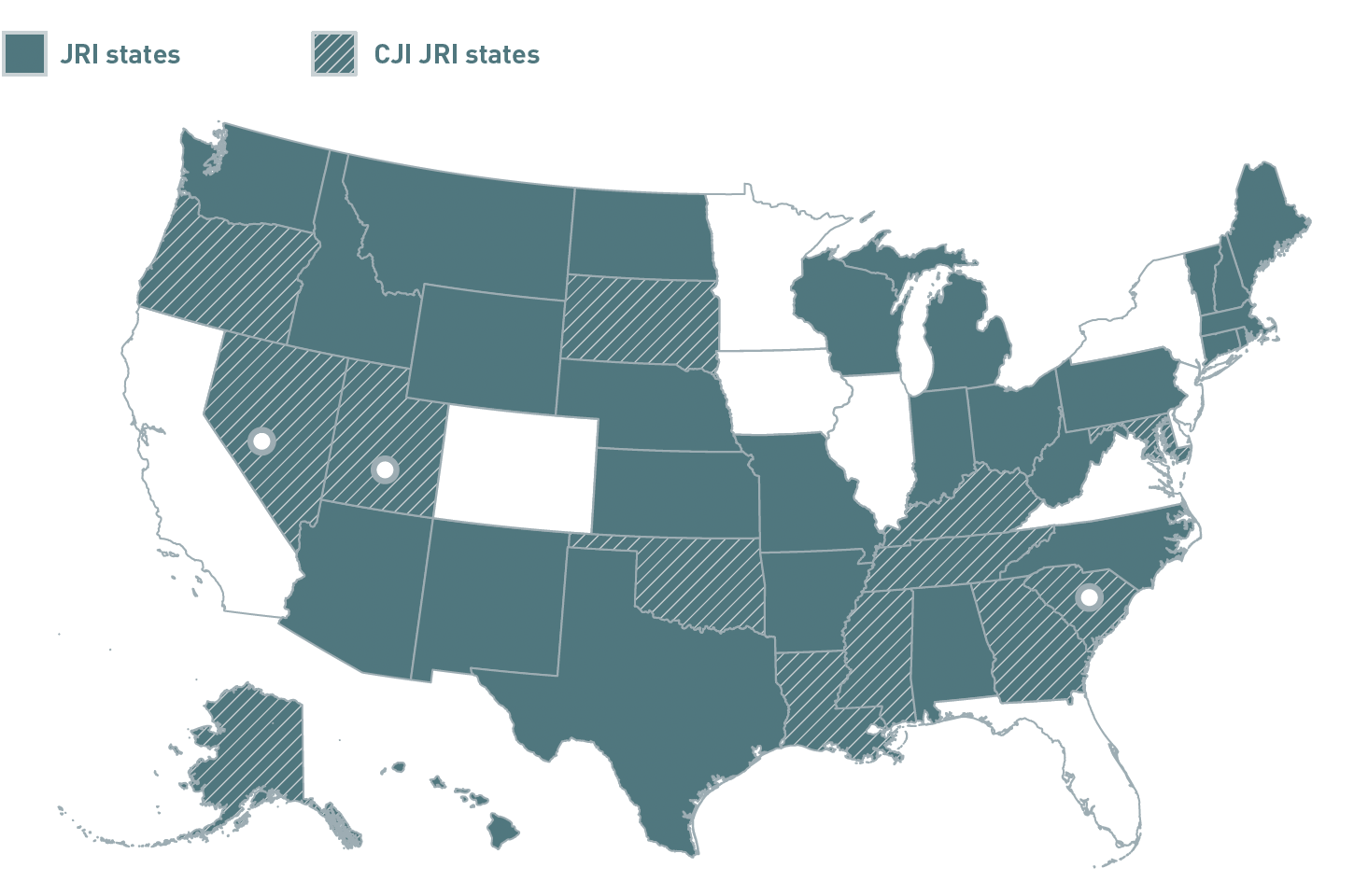
Nevada
In 2018, Nevada’s prison population had increased 7 percent over the previous decade and was projected to climb another 9 percent by 2028, costing taxpayers an additional $770 million. In 2019, the state passed JRI legislation designed to reduce recidivism, slow prison population growth, and invest in behavioral health services in the community. The bill is projected to avert 63 percent of the estimated prison population growth over the next 10 years, saving taxpayers $543 million. CJI is currently assisting Nevada with Phase II implementation.
Utah
In the decade leading up to its pursuing JRI in 2015, Utah’s prison population grew 18 percent and was on track to increase another 37 percent in the next 20 years at a cost of $500 million. Utah leaders responded by passing JRI legislation that prioritized expensive prison space for serious and violent offenders, strengthened probation and parole systems, and expanded offender reentry and treatment programs. As a result, Utah’s prison population fell 12 percent in just two years, with a 40 percent reduction in imprisonment for nonviolent offenses. At the same time, successful probation completion increased 20 percent, improving public safety.
South Carolina
South Carolina’s correctional population tripled from 1985 to 2010 and was projected to grow another 13 percent by 2014. State leaders responded by passing JRI legislation that improved community supervision, prioritized prison space for more serious and violent offenders, and created mechanisms to monitor the reforms going forward. The state’s prison population has since declined 14 percent, averting almost $500 million in costs, and the crime rate has continued to decrease.
Len Engel
Director of Policy and Campaigns 508.782.5125 • lengel@cjinstitute.org
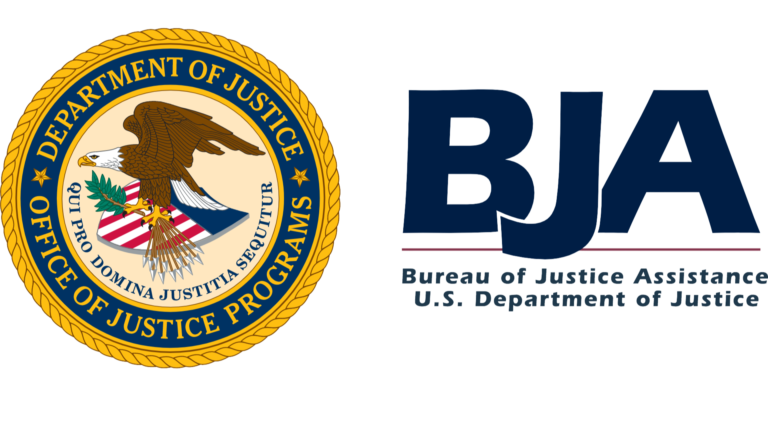
This project was supported by Grant No. 2015-ZB-BX-K002 awarded by the Bureau of Justice Assistance. The Bureau of Justice Assistance is a component of the Department of Justice’s Office of Justice Programs, which also includes the Bureau of Justice Statistics, the National Institute of Justice, the Office of Juvenile Justice and Delinquency Prevention, the Office for Victims of Crime, and the SMART Office. Points of view or opinions in this document are those of the author and do not necessarily represent the official position or policies of the U.S. Department of Justice.
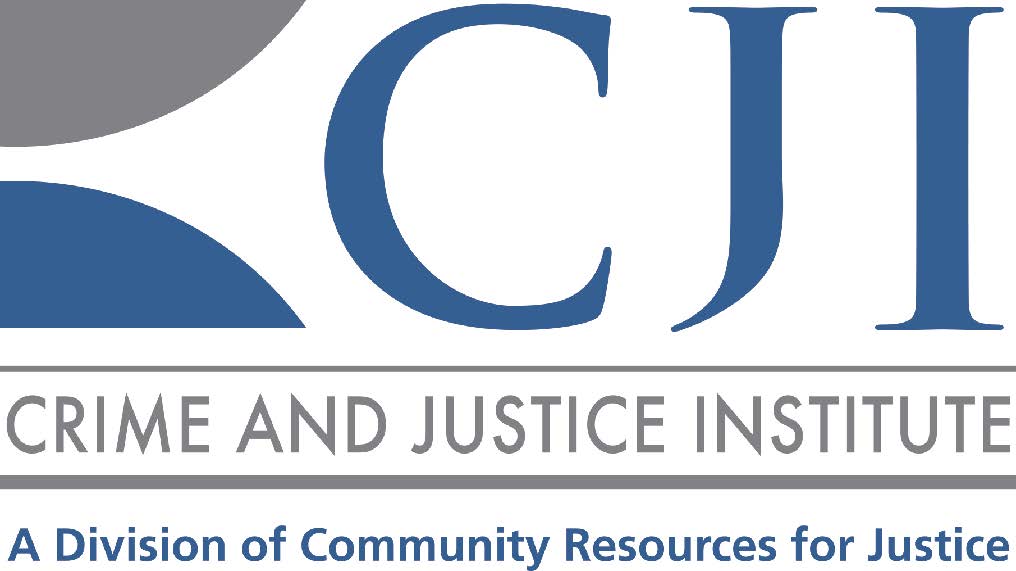
The Crime and Justice Institute (CJI), a division of Community Resources for Justice, works to improve public safety and the delivery of justice by providing nonpartisan technical assistance, research, and other services to improve outcomes across the spectrum of the adult and juvenile justice systems, from policing and pretrial through reentry. CJI provides direct technical assistance, assessment, implementation, research, data analysis, training, facilitation, and more. We take pride in our ability to improve evidence-based practices in public safety agencies and gain organizational acceptance of those practices. We create realistic implementation plans, put them into practice, and evaluate their effectiveness to enhance the sustainability of policies, practices, and interventions. Find out more at www.crj.org/cji.
